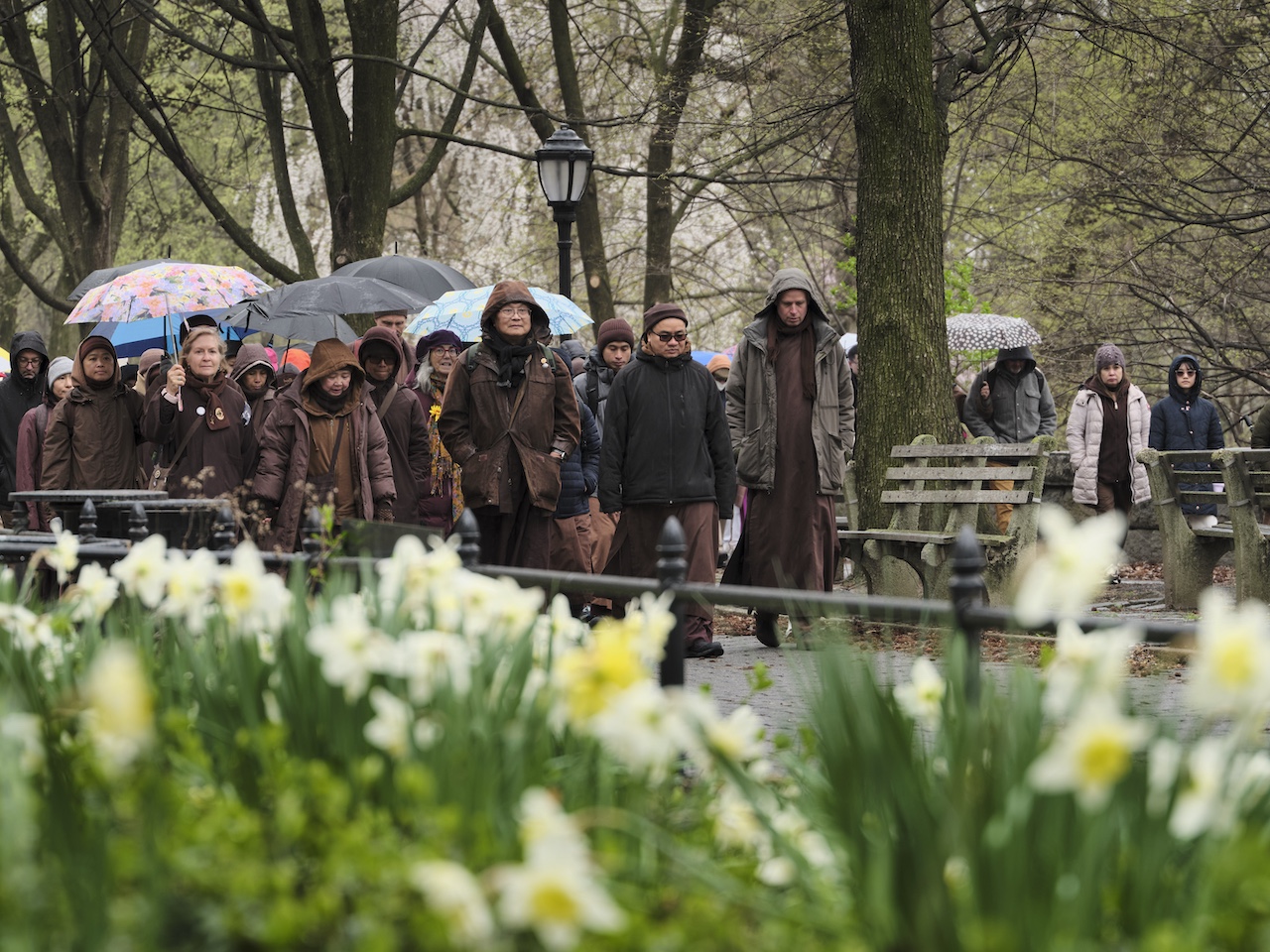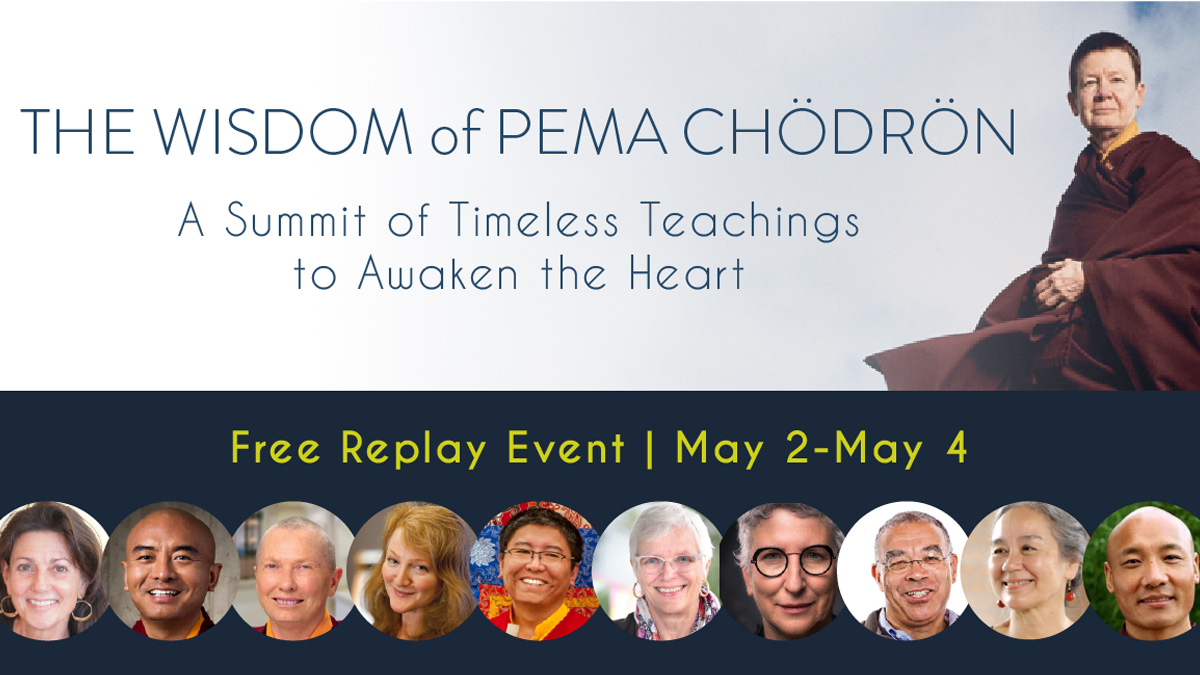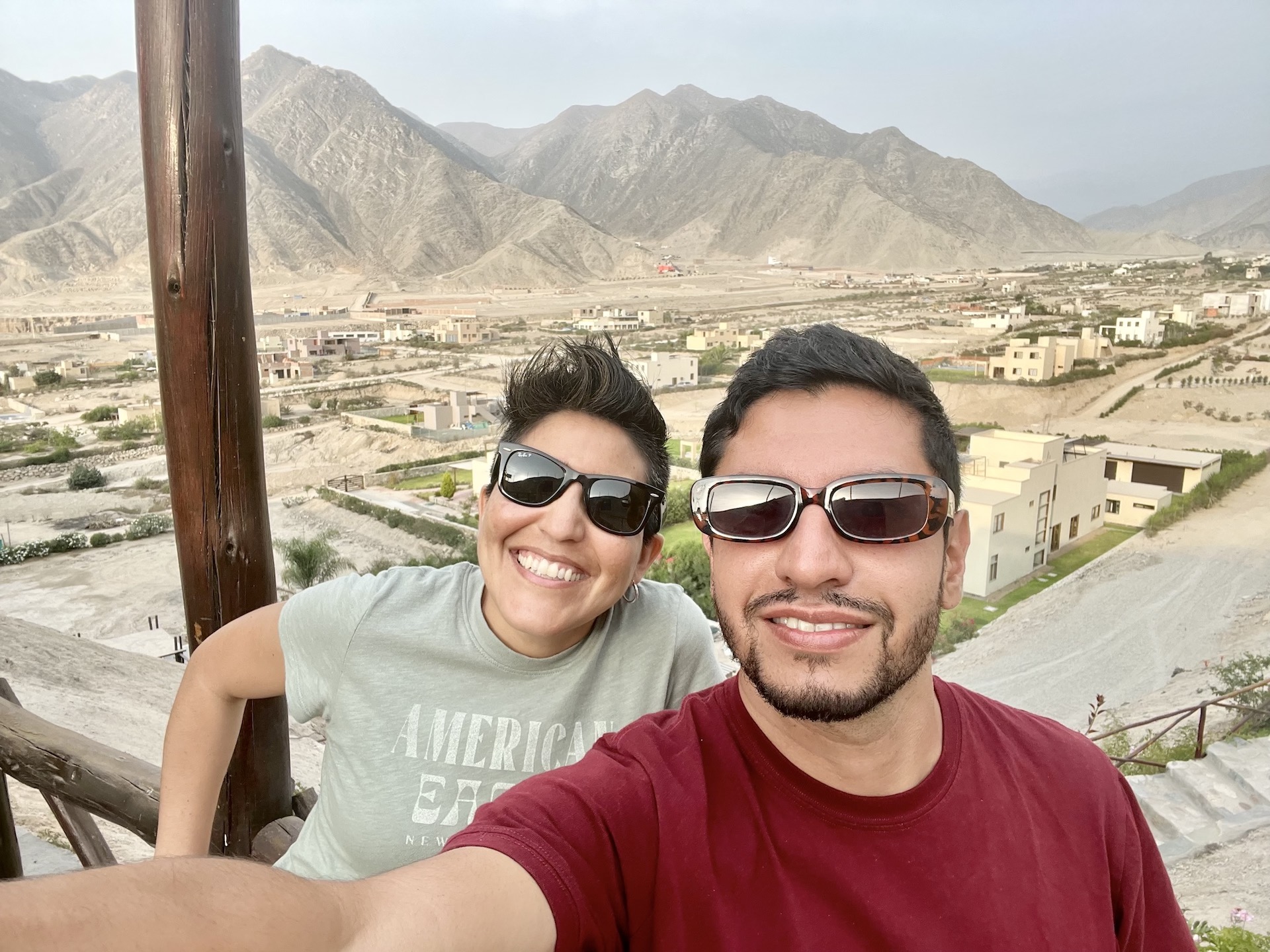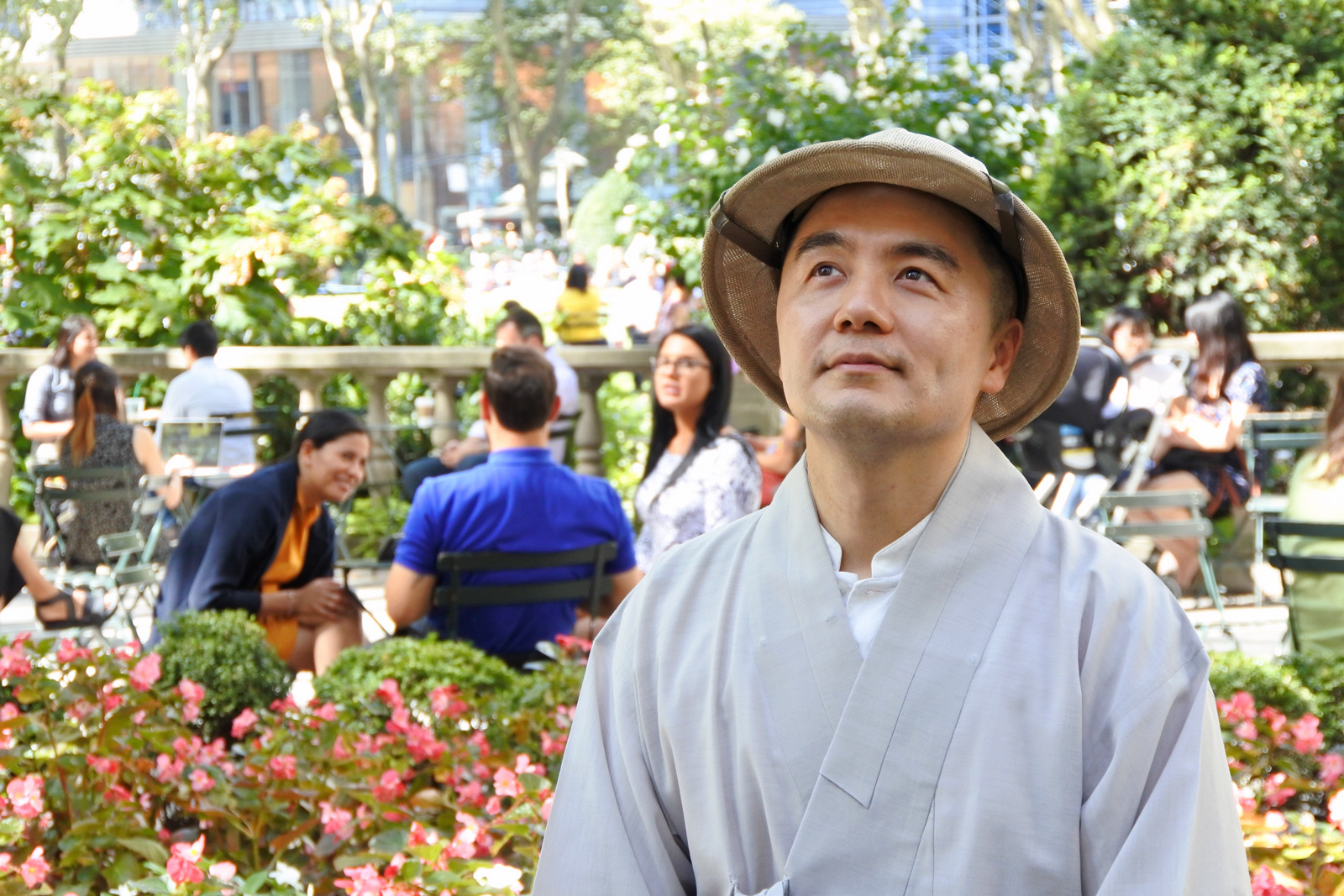How to Transform Violence and Fear
In this article, we explore the first part of an in-depth commentary on the Discourse on Transforming Violence and Fear, which Thay offered through four Dharma talks in Vietnamese during the 2009–2010 Rains Retreat.

In this article, we explore the first part of an in-depth commentary on the Discourse on Transforming Violence and Fear, which Thay offered through four Dharma talks in Vietnamese during the 2009–2010 Rains Retreat.
Sutras / Discourse on Transforming Violence and FearAttadaṇḍa Sutta,
#16 of the Arthapada, Taishō 198, Snp 4.15
1) Let us listen and observe to understand how, from a happy and wholesome state, people have brought society into a state of terror and violence. How have past generations acted for the situation to become like this? I want to talk to you about this suffering and tell you how I have been able to let go of fear.
2) People in the world experience one suffering after another like a fish living in a pond that is drying up day by day. In a situation of suffering, violent thoughts easily arise, and out of ignorance, people seek to relieve their suffering by terrorizing and punishing others.
3) The whole world is burning with violence. Every place is in turmoil. Nowhere is completely safe. Everyone thinks they are better than others and few people know how to let go of their attachments. Unable to see this truth, people continue to hold on to their wrong perceptions.
4) People bind themselves up in these wrong perceptions just bringing more ignorance and pain into their lives. I have looked deeply into the minds of those who are not happy, and I have seen hidden under their suffering a sharp-pointed knife. Because they cannot see the sharp-pointed knife hidden in their mind, they are not able to bear the pain.
5) The pain brought about by the sharp-pointed knife lasts a long time without changing. People hold on to that knife wherever they go, so that their pain spills out into the world. Only when they have a chance to recognize the knife and take it out of their hearts, will their suffering cease, and they will have a chance to stop running.
6) Do not allow any worldly fetter to bind you. The roots of wrong-doing and agitation have to be abandoned. Let go of them and do not take refuge in them. If you can put aside wrong desire, you can overcome every misfortune. The practitioner must break free from the cycle of suffering in order to realise their career of liberation.
7) To be a true practitioner you must be wholehearted and sincere, not doing anything based on wrong perception. Go straight on your path, not employing divisive speech. Know how to put out the flames of hatred and break the blocks of wrong desire. If you are able to untie the bonds of the afflictions, you will begin to see the shore of liberation.
8) Let go of pride, do not oversleep, nor sink into a state of torpor. Live and work with moderation, and do not be carried away by the emotions of the majority. Do not be caught by dazzling appearances and know how to turn your back on them. Meditate frequently on the empty nature of all things in order to realise the silence of Nirvana.
9) Do not insult anyone. Do not be attracted and caught by deceptive outer appearances. Do not launch into all kinds of amusements, forgetting that the aim of your practice is to relieve suffering in yourself and others.
10) Do not reminisce about what happened in the past and do not have wrong thinking about what will happen. Recognize what is happening in the present moment and do not be carried away by it. In this way, you can walk alone anywhere in the world of the five continents and the four oceans and no one will be jealous of you.
11) I maintain that craving pleasure is the most destructive force. It is the flood that engulfs the whole world. If you can see that, you can master all doubts. You need to apply your mind to the meditation on conditioned co-arising. You should see that if you cannot overcome the defilement of sensual desire it will be difficult to put an end to suffering.
12) Throughout the ages, the number of people who have had the energy to let go of desire for pleasure is very small. However once you, the practitioner, have let go of desire, you do not feel you have lost anything and you do not need to find another place to go to. The flood subsides all by itself, and nothing can bind you anymore.
13) Relying on the power of the vehicle of insight, the Muni crosses to the other shore. Thanks to this insight they have no more anxiety and see they are protected. Birth, death, disasters, and jealousy cannot assail them anymore. By the power of right diligence they realise true peace.
14) When there are no more false notions, your suffering ends. Practitioners meditate on the emptiness of all phenomena and are no longer caught in them. Having seen directly the great way that leads to peace, they are no longer caught in any of the views that exist in the world.
15) When practitioners are not caught in the view: “This body is myself,” see the ungraspable nature of things and that there is no real existence of a separate self, they have nothing more to be anxious about.
16) When ignorance is uprooted, and all its new shoots have been removed and have no chance to grow again, the practitioner does not cling to anything in their present environment, because there is no longer the need to discriminate between friend and enemy.
17) No longer caught in the concepts of matter and mind as separate from each other, no longer caught in any concept, not seeing anything to grasp, understanding that space and matter are empty, nothing in the three times can make the practitioner complain in anger.
18) Having completely transcended concepts about everything, including the idea of an object, then you are able to master all the wholesome practices. Having practiced and eloquently taught the teachings of non-desire and non-duality, you are not hesitant in responding to any questions put to you.
19) Having attained understanding, you no longer need to be a follower of anyone. No longer yearning for nor hating anything, you attain inner peace and realize the silence of Nirvana.
20) Standing on high, the Muni doesn’t feel proud. In a lowly position they have no complex. they dwell in equanimity and are not caught in any view. There is no longer any dispute with anyone; hatred and jealousy have ceased. Standing in a place of true insight, they do not feel the slightest pride.
Translated by Thich Nhat Hanh from Number 16 of the Arthapada, Taishō 198 (corresponding to Attadaṇḍa Sutta, Sutta Nipāta 4.15, Verse #935-954)
King Virudhaka Sutra no.16 of the Arthapada, Taishō 198 (corresponding to Attadaṇḍa Sutta, Sutta Nipāta 4.15, Verse #935-954)
In Vietnamese, it is called the Duy Lau Lac Vuong Sutra, no.16 of the Nghia Tuc Sutra collection. “Nghĩa Túc” should be translated as “The Sutra of Complete Teaching” or “The Sutra on the Meaning of the Teaching Presented in Verses.”
 Transforming violence and fear
Transforming violence and fearSuffering – the desire to harm arises from suffering
This sutra, even though it was spoken 2,600 years ago, is still very fresh. It is still relevant. From suffering, the desire to harm arises in the mind. Because people suffer, in their hearts there is the wish to punish, to destroy. When we have suffering inside, we harbor resentment toward the one who has made us suffer. We want to do something to punish that person. The desire to harm. To harm means to act violently. Desire means wanting. There is a tendency to want to punish, to kill, to strike, to break, to shatter, to make disappear. This is called the desire to harm, that is, the wish and the intention to destroy.
It is because we suffer, but we do not know how to take care of our suffering. That is why, naturally, we give rise to the intention to punish. That wish to punish can become very strong. Even if we have to die, we accept it. Because in our hearts, there is the wish to punish. And that wish to punish is born from our own suffering.
The path to suffering: wrong perceptions and pride
We try to find relief from our suffering, we try to seek revenge by causing suffering to others. But that is darkness, that is delusion (vô minh), and it lies deep in our own hearts.
Everyone thinks they are superior to others; very few people know how to let go of their own attachments and passions. Because we do not see this truth, we continue to hold on tightly to our wrong perceptions.
Tự cống cao, bất xả ái. This word “cống” means pride. Tự cống cao, bất xả ái. Ái here means our own passions, our attachments. Each person has their own particular craving, their own passion. And we are unable to let go of our thirst, our longing, our attachment. Because we do not see this truth, we continue to cherish our mistaken perceptions.
When there is that pride, when our pride is wounded, then hatred arises in us. And that hatred, when it combines with our ambition, becomes a very strong force, and we create turmoil within our own body and in our surroundings.
We do not see that reality; we are blind to it. That is why we continue to nourish our darkened mind. Deluded intention—si ý—means a mind clouded in darkness. We must see that our suffering, and the suffering of the other person, are both caused by two things: first, our craving, our greed, and second, our pride.
When someone criticizes us—when they reject our religion, our culture, or our way of life—we often feel deeply wounded in our pride. We may think, “If they don’t accept us, why should we accept them?” As human beings, we can be unwise. We say or do things that unintentionally become sharp knives, piercing the hearts of others.
Our words and actions can create those very wounds. The other person suffers, and in their pain, they may want to punish us to find some relief. This is the heart of the problem. And it all begins with our wrong perceptions.
The practical question is: how can we recognize that sharp knife within ourselves, and take it out so that we can be well? Only then can we help the other person do the same, to remove the sharp knife from their heart. This is the essence of this sutra.
Only when we have the chance to recognize it and remove it from our heart, will suffering cease and we will have the opportunity to stop. Violence and fear have a very deep root. That is the arrow, that is the sharp point in our heart. That sharp point is our wound, a wound caused by criticism, oppression, and contempt from others.
The childhood wound of Virudhaka and the spiral of hatred
Virudhaka was a violent and cruel king. He was the son of a servant woman and King Pasenadi, who was very close to the World Honored One. In the past, someone acted carelessly. Because of that, this king carried a poisoned arrow in his heart. When he grew up, he brought destruction to the world. He killed countless people, including members of the Shakya clan.
Words spoken without mindfulness can create suffering later on. ‘’Who are you? How dare you come in here? You are only the child of a servant.’’ That eight-year-old boy returned home with a deep wound in his heart. He thought to himself, when I grow up and become king, I will bring my army to destroy and scatter the Shakya clan.
We have to ask ourselves: What have we said, what have we done, that has planted an arrow, a sharp blade, in their hearts? We may not be politicians; we may be artists, we may be poets, we may be writers. And when we speak or act without mindfulness, it is just like those people of the Shakya clan who spoke words that planted an arrow, a dagger, in someone’s heart. We ourselves are contributing to the creation of those who become terrorists.
The way out: inclusivity and the four immeasurable minds
In the Buddhist tradition, we are taught that the Four Immeasurable Minds are loving kindness, compassion, joy, and inclusiveness. Inclusiveness means not excluding anyone. Inclusiveness is the spirit of embracing all, not leaving anyone out.
The first thing we must say to the other person is this: My friend, you are my brother. I do not want to exclude you. Whether we are politicians, whether we are people of culture, whether we are technicians, we must learn to say this. I want to find a way for us, as brothers, to be able to live together on this Earth. This is what we must say. This is inclusiveness.
The image of a sharp knife blade in the heart is a very clear image. We have lived in such a way that we have created, we have fashioned knives, sharp blades in the hearts of others.
The first step of practice is to find a way to remove the sharp blade from our own heart. That sharp blade is made from what we have heard, what we have seen, what we have thought, from our own perceptions.
We have to say: Dear friend, I have that knife in my heart. I am suffering so much. I want to take it out, only then will I be free. We must begin from there.
Resources
Discourse on Transforming Violence and Fear
Defuse me (Poem by Thay)

 ValVades
ValVades 






























